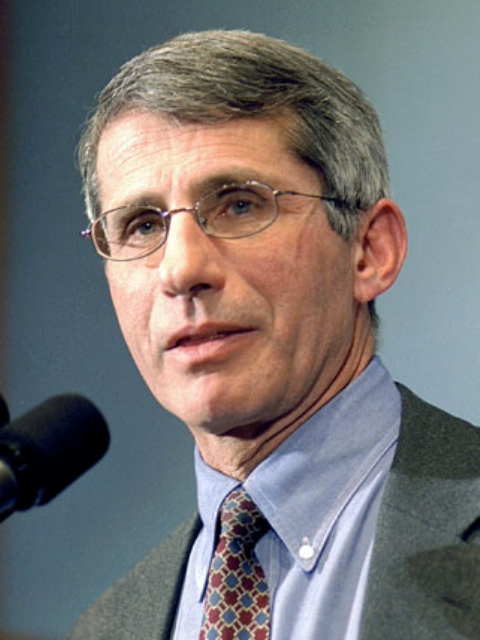Fauci sees signs of hope in some U.S. states hard hit by outbreak
In late March, as the economy was beginning to crater, Congress passed a $2.3 trillion stimulus package that included enhanced unemployment benefits to blunt the pain of lockdowns that were being adopted to stop the spread of the coronavirus. Senate Republicans announced on Monday a $1 trillion coronavirus aid package hammered out with the White House, which Senate Majority Leader Mitch McConnell touted as a "tailored and targeted" plan to reopen schools and businesses, while protecting companies from lawsuits.

- Country:
- United States
A coronavirus surge in Florida, California and a handful of other hard-hit states could be peaking while other parts of the country may be on the cusp of growing outbreaks, the top U.S. infectious diseases official said on Tuesday. A spike in cases in Florida, along with Texas, Arizona and California this month has overwhelmed hospitals, forced a U-turn on steps to reopen economies and stoked fears that U.S. efforts to control the outbreak are sputtering.
"They may be cresting and coming back down," Dr. Anthony Fauci, head of the U.S. National Institute of Allergy and Infectious Diseases, told ABC's "Good Morning America" program regarding the state of the outbreak in several Sunbelt states. Fauci said there was a "very early indication" that the percentage of coronavirus tests that were positive was starting to rise in other states, such as Ohio, Indiana, Tennessee and Kentucky.
"That's a surefire sign that you've got to be careful." Fauci has become a lightning rod for some supporters of President Donald Trump who accuse the 79-year-old health official of exaggerating the extent and severity of the U.S. outbreak and playing down possible treatments.
Trump, who is seeking a second term in the White House in a Nov. 3 election, retweeted a post accusing Fauci and Democrats of suppressing the use of the drug hydroxychloroquine to treat the virus. The post included a link to a video of a group discounting the need for face masks, which many health officials say are necessary to control the spread of the virus. A Twitter spokesman confirmed that tweets with the video were in violation of the company's COVID-19 misinformation policy, and the tweets shared by Trump were deleted.
In his interview with ABC, Fauci defended his work to protect Americans' health. "I have not been misleading the American public under any circumstances," he said.
RISING TOLL The number of people in the United States who have died of COVID-19, the respiratory illness caused by the novel coronavirus, rose to 148,446 on Monday, with more than 4.3 million confirmed cases, according to the latest Reuters tally.
Florida had 191 coronavirus deaths in the last 24 hours, the highest single-day increase since the start of the epidemic, its state health department reported on Tuesday. The southern U.S. state's worsening outbreak prompted Trump last week to cancel his Republican Party's nominating convention events in Jacksonville in late August, and Major League Baseball has postponed some games in its truncated delayed season after a number of Miami Marlins members tested positive for the virus.
Although cases continue to rise in Texas - it is now among four states with more than 400,000 cases - a drop on Monday in current hospitalizations due to COVID-19 reported by the state health department provided a glimmer of hope. In New York, Governor Andrew Cuomo added Illinois, Kentucky, Minnesota, the District of Columbia and Puerto Rico to a list requiring travelers visiting to quarantine for 14 days. Thirty-one other states are on the list, which was first unveiled last month.
New York was one of the early epicenters of the U.S. outbreak, which first surfaced in China late last year and has now killed more than 654,000 people worldwide. The rise in U.S. deaths and infections has dampened early hopes that the country was past the worst of the economic fallout in March and April when lockdowns brought business activity to a near standstill and put millions out of work.
The U.S. Congress on Tuesday was locked in difficult talks over another coronavirus aid package to help American families and businesses recover from the crisis. In late March, as the economy was beginning to crater, Congress passed a $2.3 trillion stimulus package that included enhanced unemployment benefits to blunt the pain of lockdowns that were being adopted to stop the spread of the coronavirus.
Senate Republicans announced on Monday a $1 trillion coronavirus aid package hammered out with the White House, which Senate Majority Leader Mitch McConnell touted as a "tailored and targeted" plan to reopen schools and businesses, while protecting companies from lawsuits. But the proposal sparked immediate opposition from both Democrats and Republicans. Democrats decried it as too limited compared with their $3 trillion proposal that passed the House of Representatives in May. Some Republicans called that one too expensive.
New York City Mayor Bill de Blasio, a Democrat, described the Republican proposal as a "non-starter," telling reporters that it provided zero support for state and local governments hardest hit by the epidemic. The Republican proposal would give many Americans direct payments of $1,200 each, provide billions in loans to small businesses and help schools reopen. But it would slash the current expanded unemployment benefit from $600 per week in addition to state unemployment to $200 per week. The enhanced unemployment benefit expires on Friday.
(This story has not been edited by Devdiscourse staff and is auto-generated from a syndicated feed.)










